
Elementary Principal’s Corner
by Ms. Maureen Juanson, Elementary School Principal, PYP Coordinator, & Accreditation Officer
The International Baccalaureate (IB) Mission in Action at CIS
CIS offers three programs of the IB, namely Primary Years Programme (PYP), Middle Years Programme (MYP), and the Diploma Programme (DP). If you look closely into the program models, you will find that the IB Learner Profile is in the center of all three. “The attributes of the learner profile represent a broad range of human capacities and responsibilities that encompass intellectual, personal, emotional and social growth. The development and demonstration of these attributes are foundational to students becoming internationally minded, active and caring community members who respect themselves, others and the world around them” (IB 2018). By promoting the attributes of the learner profile in our different classes, we are working together toward the goal of all IB programs for students to develop and demonstrate international-mindedness.
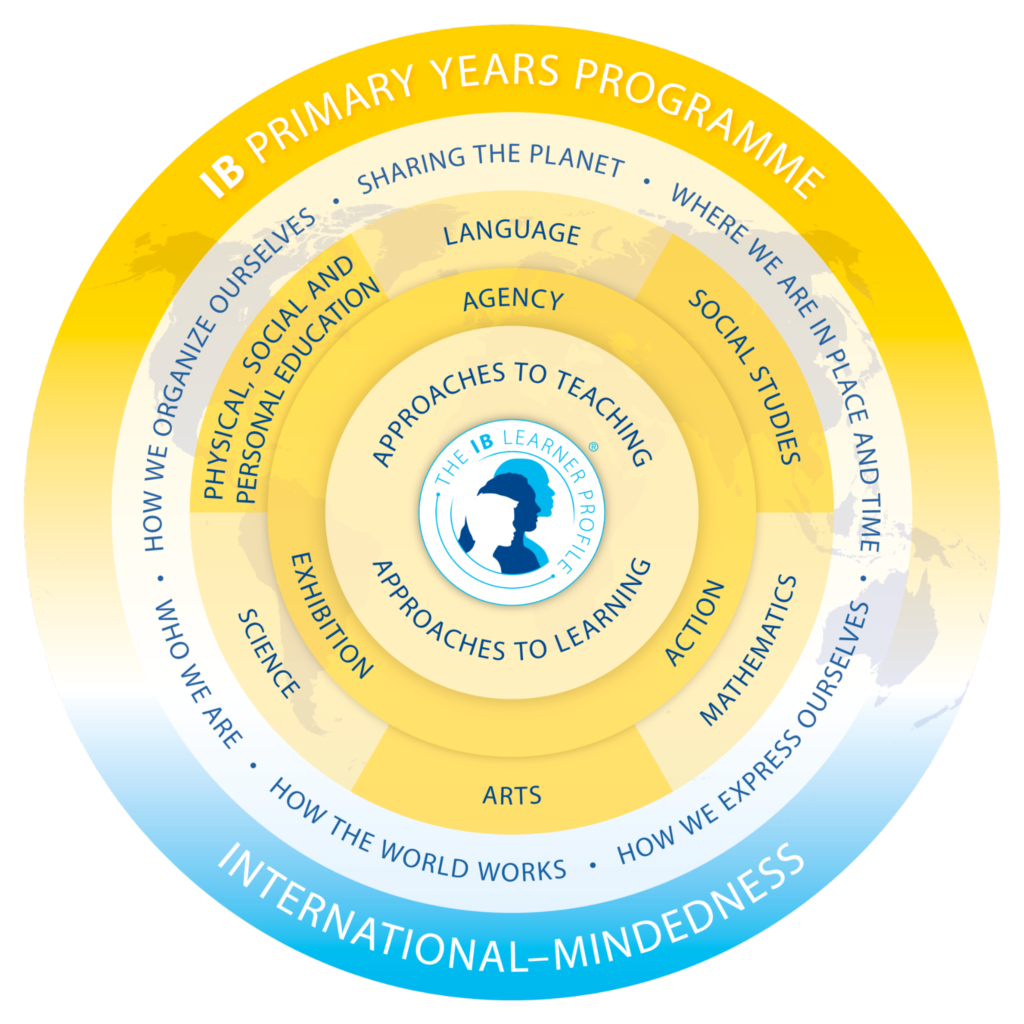
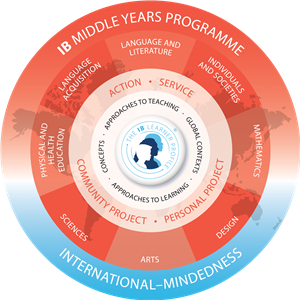
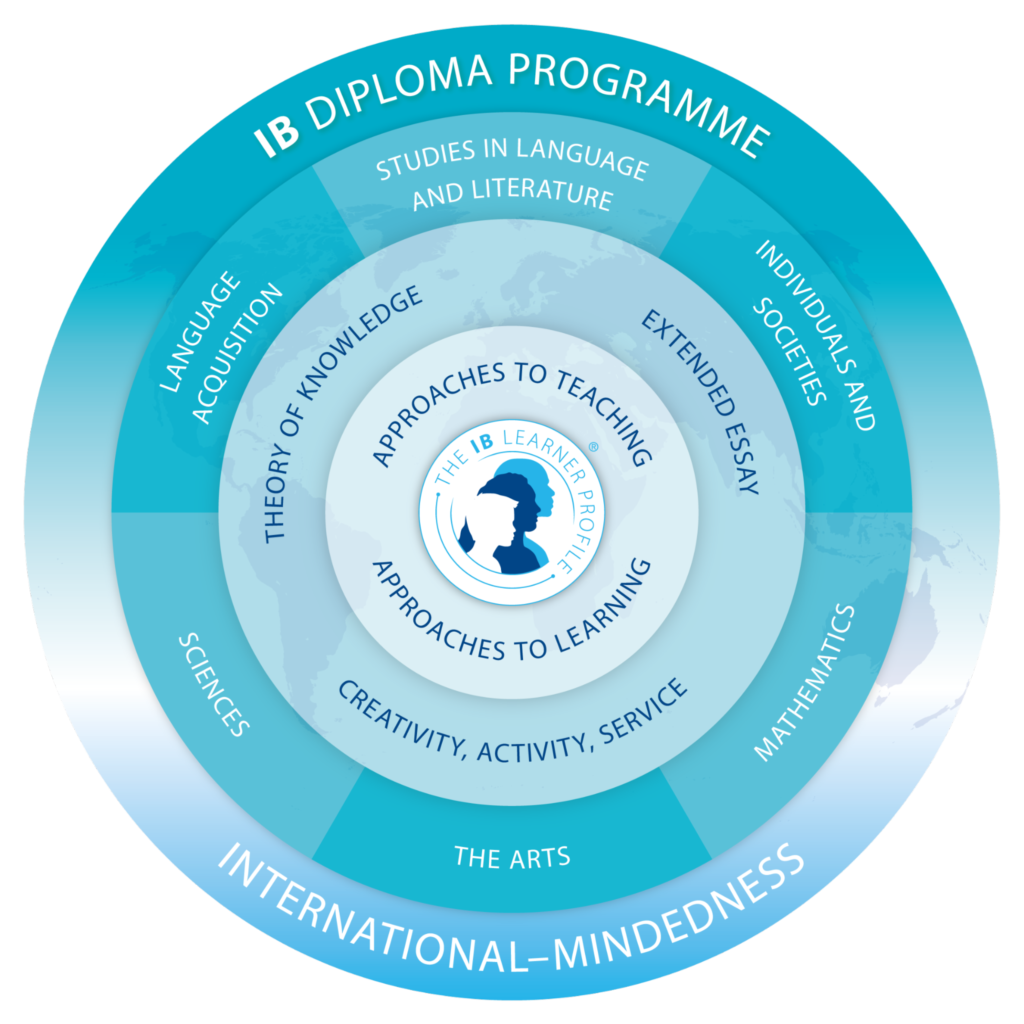
At CIS, students have several opportunities to develop, demonstrate, and reinforce attributes of the learner profile in their daily interactions and engagements with the learning community. The IB learner profile attributes are embedded into the units of study and subject-specific investigations or inquiries. They are also reinforced and practiced during their interactions in the different learning spaces at school. The IB learner profile attributes are promoted during school events such as assemblies, school productions, HAD, and cultural events. Most importantly, the attributes are demonstrated by students when interacting with families, friends, and other community members.
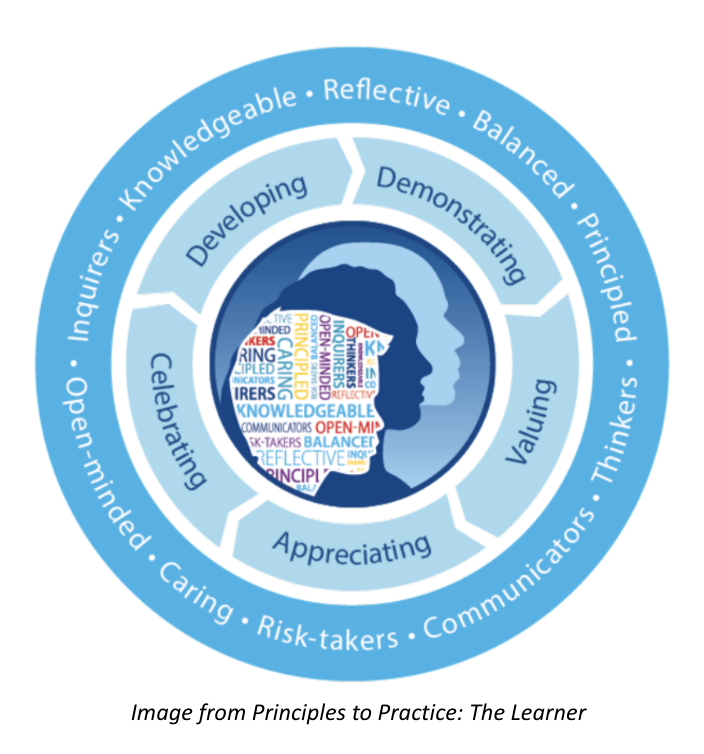
During the first two weeks of school, students across the school have had the opportunity to engage with the IB learner profile attributes in conversations with their teachers and classmates. In elementary, students have been unpacking what the IB learner profile attributes mean in the context of their units of inquiry and subject areas. They have been looking at ways on how they could demonstrate and develop these attributes as they inquire into the concepts they are focusing on in their first unit of inquiry. In middle and high school, students have been reviewing what each of the IB learner profile attributes mean and how it relates to the approaches to learning (ATL skills) that they have been developing to become successful learners.
As members of the CIS learning community, we have a collective responsibility to support and nurture students in developing and demonstrating these attributes in varying levels. We all play a significant role in ensuring that the IB learner profile attributes are valued, appreciated, demonstrated, and celebrated. Familiarizing ourselves with these attributes provide us with a common language to describe and reflect on what it means to become internationally minded.
This week’s newsflash features how our Grade 5 students are learning to approach learning with the IB learner profile attributes and how our DP Psychology students are demonstrating what it means to be Inquirers and Knowledgeable as they begin to look into the Science of Psychology. As you read through these, I invite you to reflect on how you can reinforce the IB learner profile attributes in conversations and interactions at home with your families.
Upcoming events of note
- Aug. 21: School holiday
- Aug 22: ASAs start
- Aug. 28: National Heroes Day (Public Holiday)
- Aug. 29: Parent Coffee Meeting (CIS Annex 7:30am)
Please refer to the CIS Event Calendar for the complete calendar of school events.

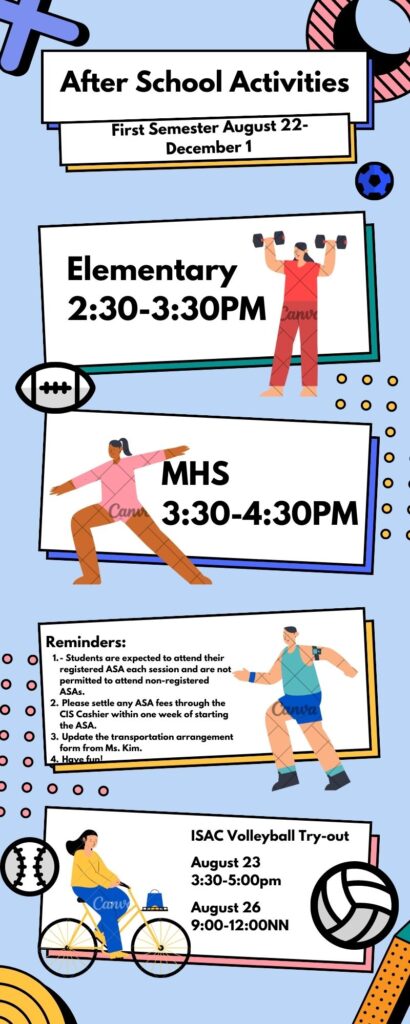
Grade 5: Approaching The Learning Pit with IB Learner Profile Attributes
by Mrs. Aimee Underwood, Assistant PYP Coordinator & Grade 5 Homeroom Teacher and Ms. Jade Berdon, Grade 5 Co-Homeroom Teacher
Think about a time when you tried to learn something new. It might have been difficult and frustrating. If so, how did you overcome your challenges and succeed? The Grade 5 students started the year by inquiring into how “expert learners” approach learning to set themselves up for success.
Together, we explored the concept of “The Learning Pit” and realized that having a positive attitude and growth mindset is important, but simply telling ourselves to “try harder” or “never give up” is not sufficient. Learners must also intentionally equip themselves with specific tools and strategies to help them navigate the learning process effectively.
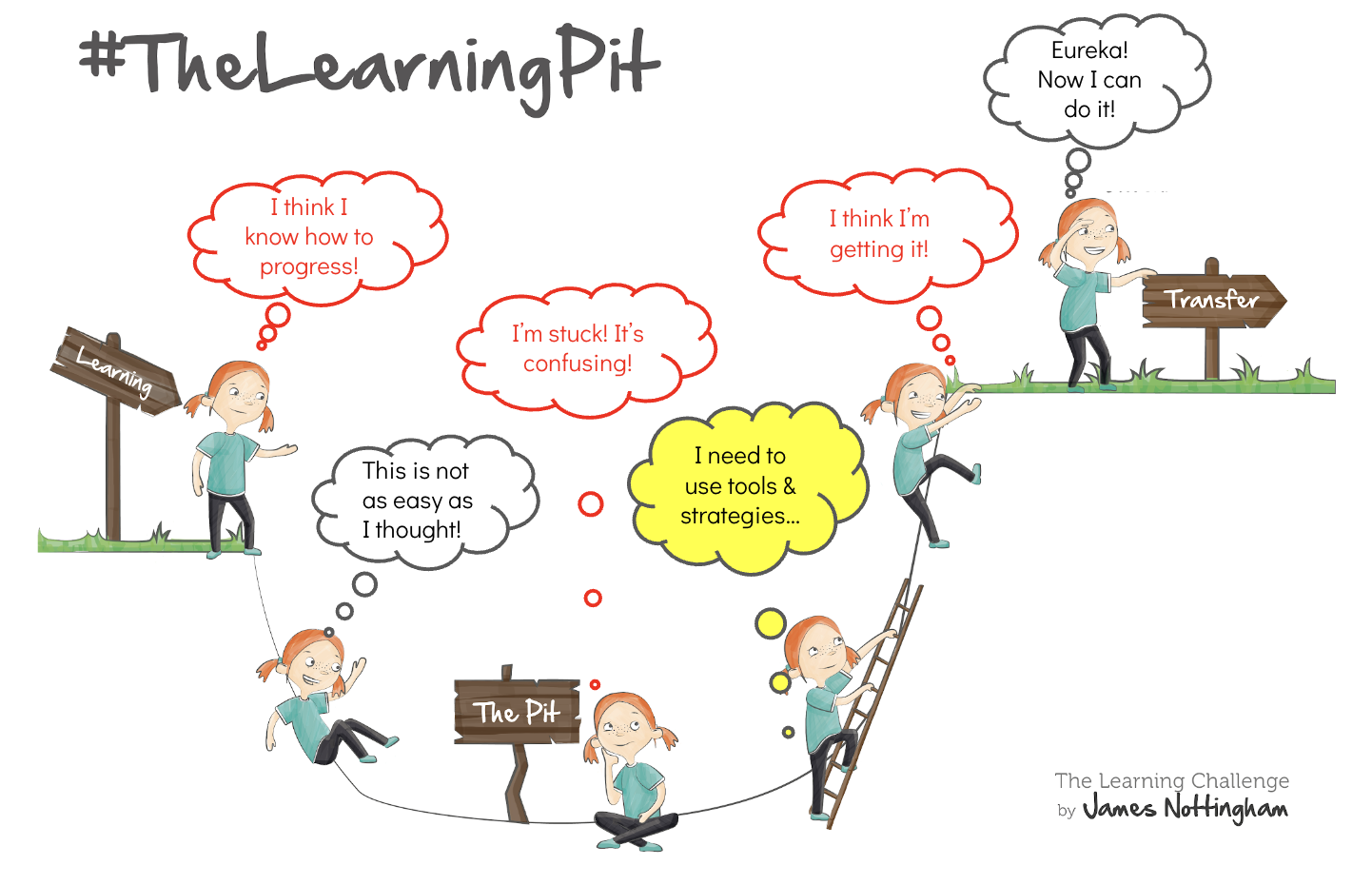
Then, listening carefully to all experiences and perspectives, the Grade 5 students collaboratively explored a variety of tools and strategies from across subject areas and reflected on how they were all connected to the IB Learner Profile attributes.
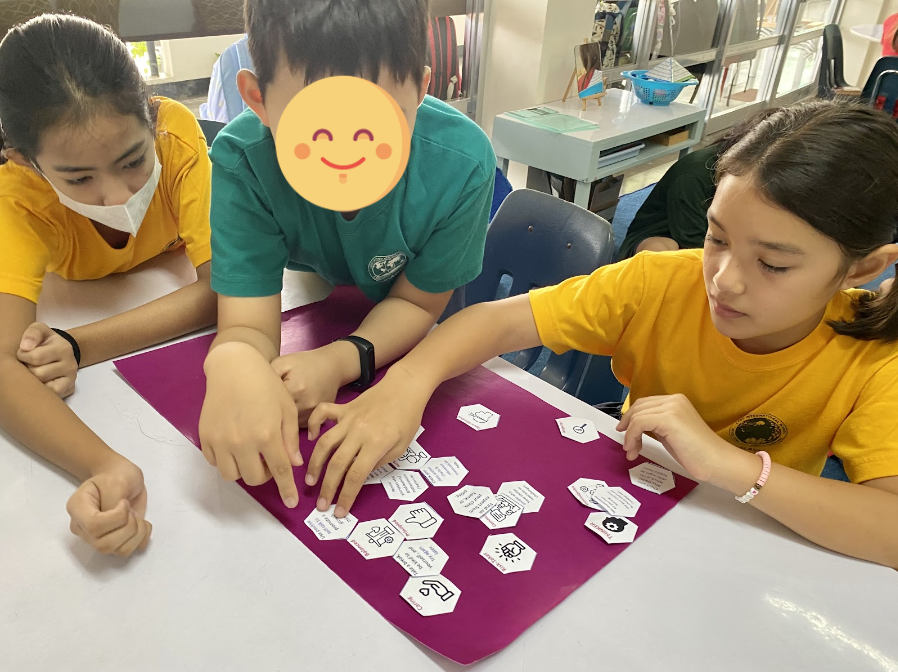
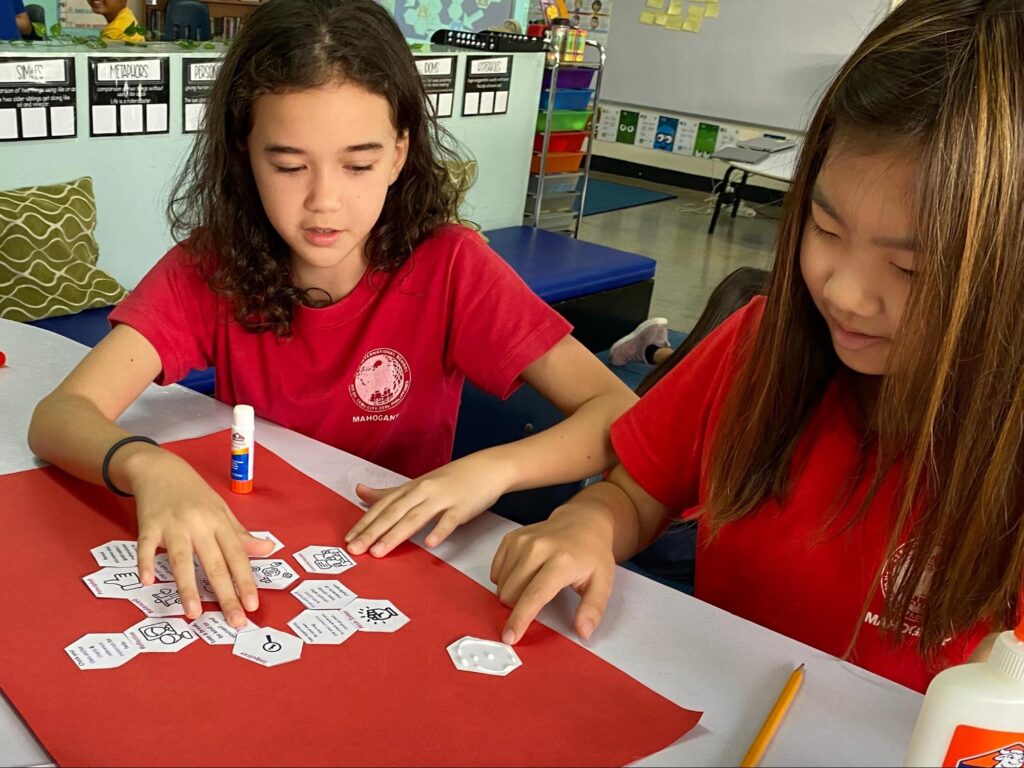
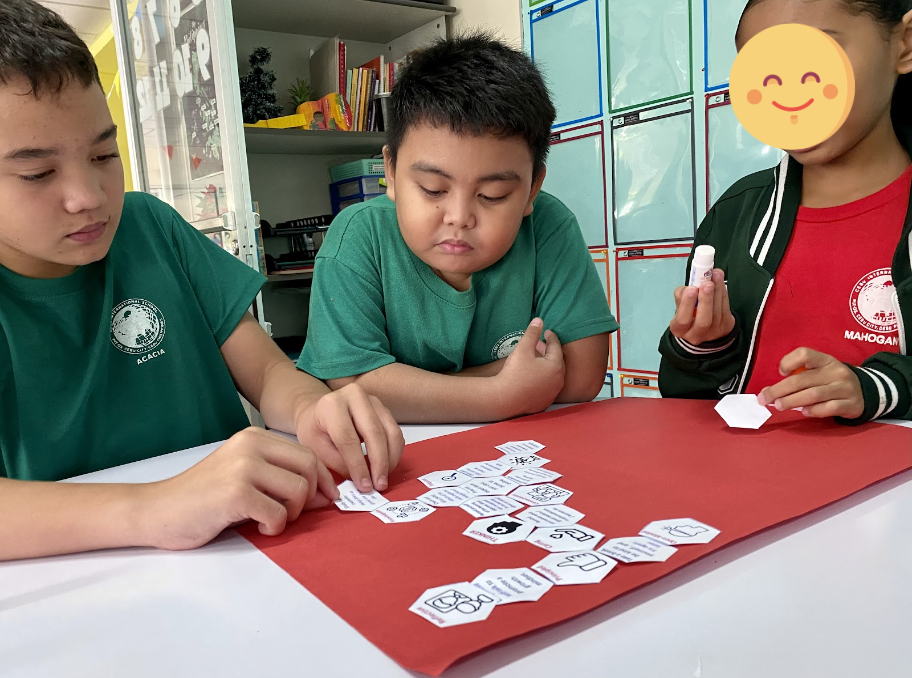
Jisoo and Caitlin shared, “It reminded us of a quote from a novel we’re reading called Esperanza Rising. When Esperanza struggles to learn how to crochet, her Abuelita tells her, ‘Don’t be afraid to start over.’ When you learn something new, you should study good examples, learn from experts, and have the courage to redo things until you can get them right. We need to be Reflective and also a Risk-Taker.”
Here are some other examples of connections made:
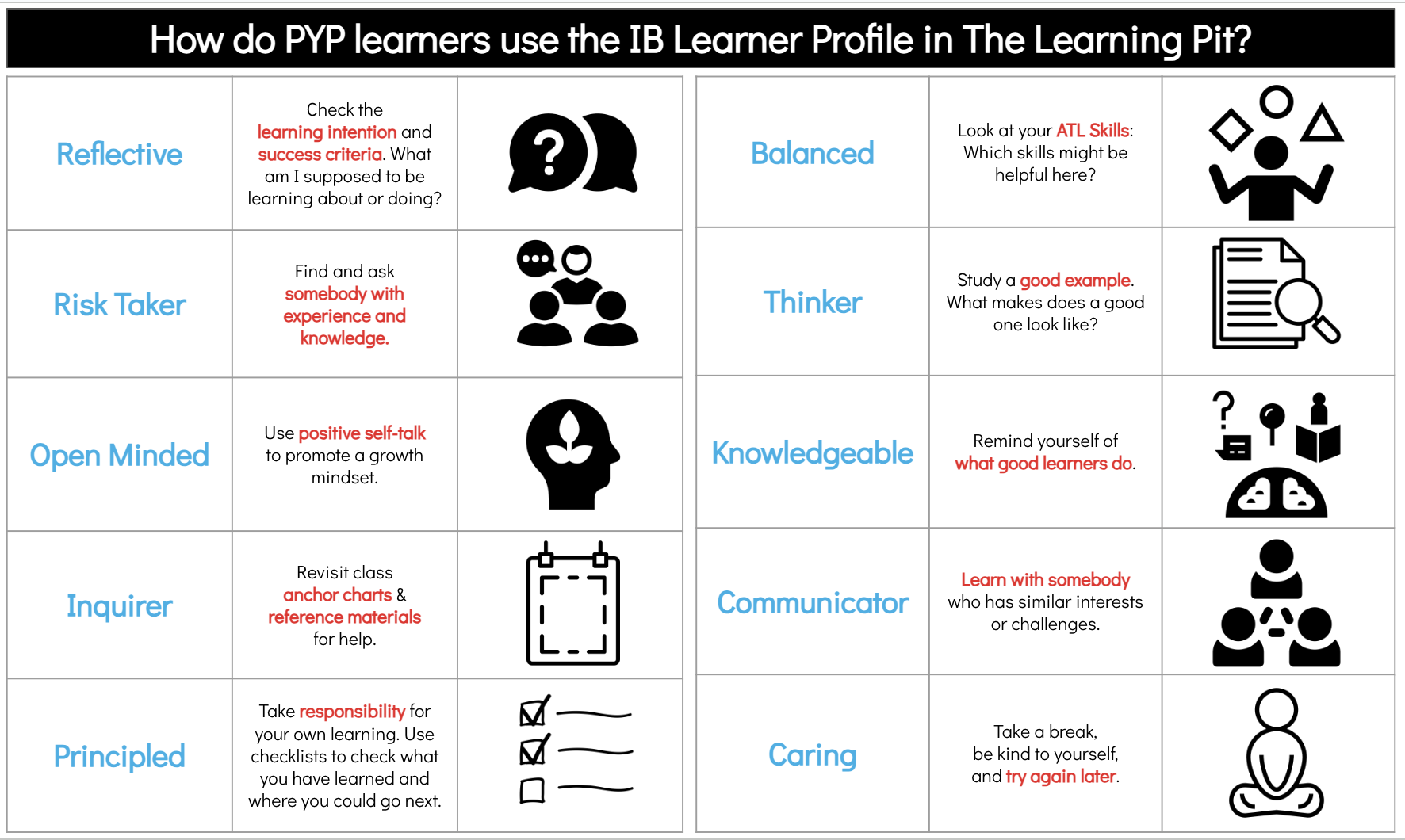
Knowing what to do when you don’t know what to do is an important aspect of self-management skills. The IB refers to learners who know where they are going in their learning and who can self-assess, self-monitor, and self-adjust toward that goal as “assessment-capable learners.”
As we begin this school year, the Grade 5 students remind us that learning is a journey and that it’s okay to face challenges along the way. By embracing The Learning Pit and developing our IB Learner Profile attributes and strategies, we can develop a resilient and proactive approach to problem-solving and experience success.
How will YOU use the IB Learner Profile attributes and related tools and strategies to help you when you approach new challenges this year?
Grade 11: Psychology
by Mr. Andrew Powell, IBDP Psychology Teacher
The Grade 11 students have commenced the year with an orientation to The Science of Psychology. This has involved learning how psychologists engage in the study of human behavior in order to study correlational or cause-and-effect relationships. In the first few weeks of school the students have been introduced to some key studies and theories in the field, in order to develop a better understanding of why people behave the way they do. They have also been introduced to a number of research methods and approaches used in psychology.
Some student highlights are as follows:

The Invisible Gorilla
Based on the work of Christopher Chabris and Daniel Simons, this research project reveals that when people are focussed on one thing, they can easily overlook something else – like the gorilla that walks through a basketball game. Viewers were asked to count the number of passes made between a group of players and many people, including the majority of our class, totally missed the person in the gorilla suit that walks between players.
“The Invisible Gorilla study taught us that when we focus on one thing, we fail to notice the other things around us. This has implications for the way we see things. For example, how reliable is the testimony of a witness to a crime?” – Kim
Cute Aggression
Have you ever felt the urge to hug or squeeze a puppy tightly? Have you considered pinching a baby or young person’s cheeks without any real desire to cause them harm? If so, you may have experienced a response known as cute aggression.
“This was a theory that I could relate to. While we learned that psychologists are still very much exploring why this takes place, I believe that it is associated with the body releasing a rush of dopamine.” – Annika
It just so happens that many of the same neural structures activated by cuteness are also activated when an individual is being aggressive.
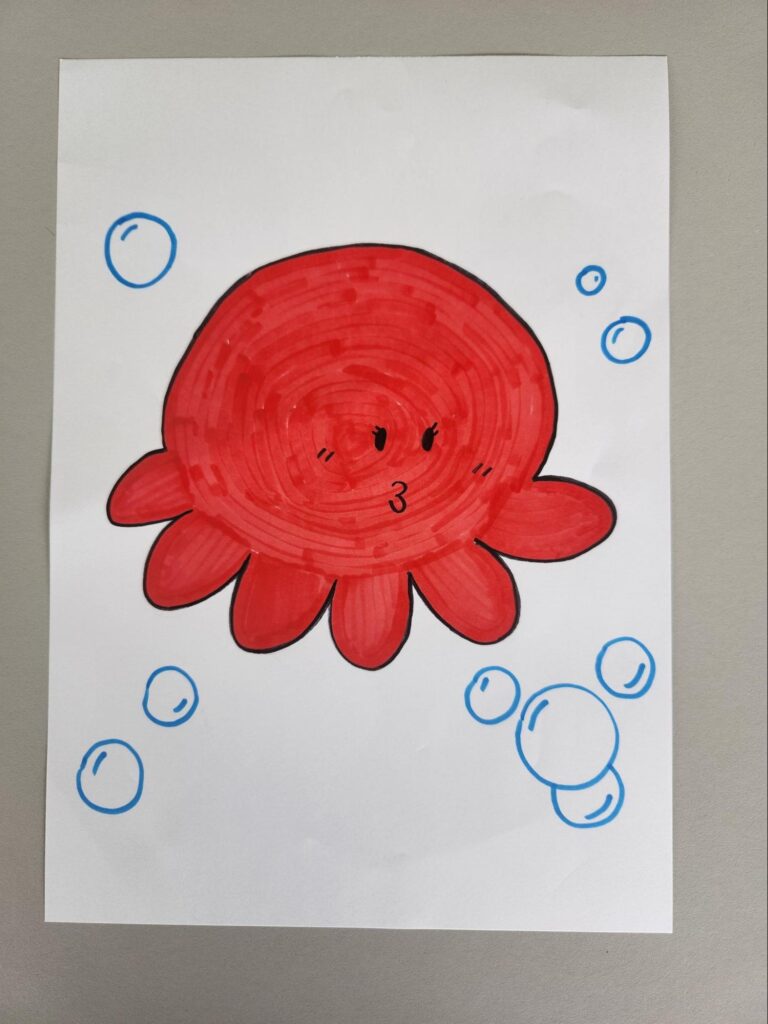

The Still Face Experiment
This study was designed by Edward Tronick, a developmental psychologist, who carried out experiments in the 1970s examining connections between babies and their caregivers. In the recreation of the experiment we watched, a mother plays with her baby before suddenly stopping and becoming unemotional. This elicits a range of physical and emotional responses from the baby until the warm connection is restored.
“We learned that although babies do not respond in words they do have very emotional responses. Babies seek attention and connection. They need care and love when growing up and this contributes to their positive developmental growth. Without it they may not develop in a healthy manner, which could lead to anxiety, depression and various psychological disorders.” – Monty
Context and Memory Studies
Bransford and Johnson used a number of text passages and picture prompts in the 1970s to establish that contextual knowledge is beneficial to the comprehending of prose passages. Their research found that when participants were supplied with appropriate information before hearing a text, that their recall and comprehension scores were significantly better. We tried this out in our classroom.
“In environments like classrooms where we are exposed to a lot of new knowledge, we tend to remember a certain topic more when we connect it to past experiences, or when the teacher provides context in a similar way to the pictures that Bransford and Johnson used.” – Sengo
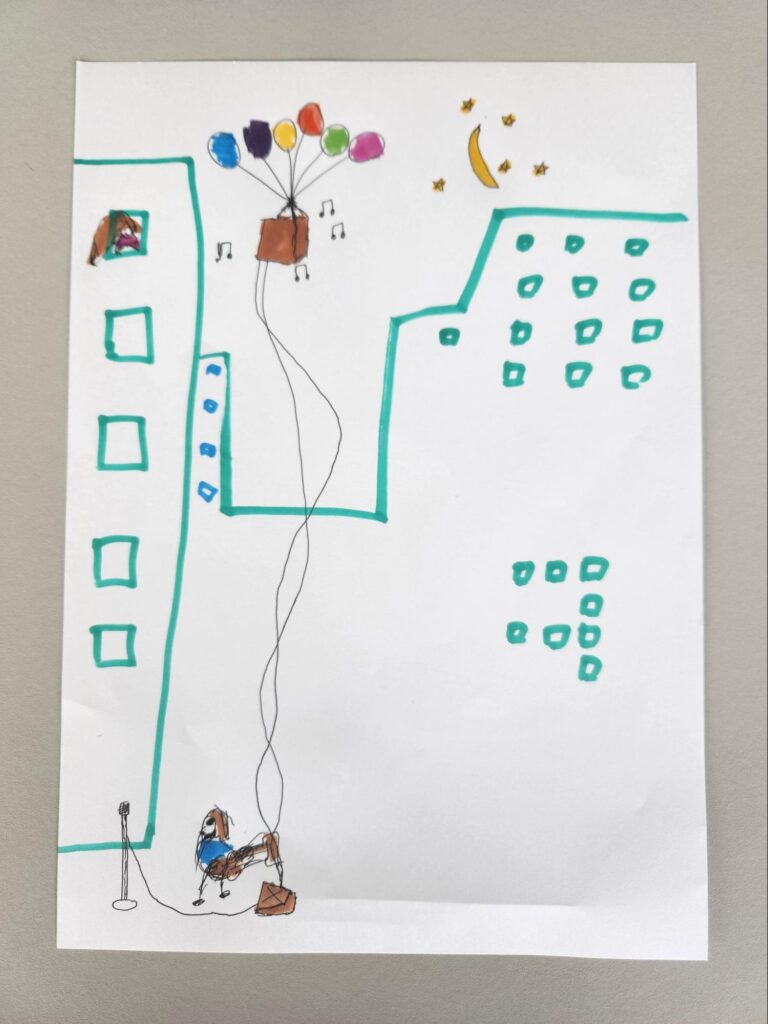
College/Careers Counselor Corner
by Ms. Jenny Basa, College/Careers Counselor Corner
College Visits this Week @ CIS
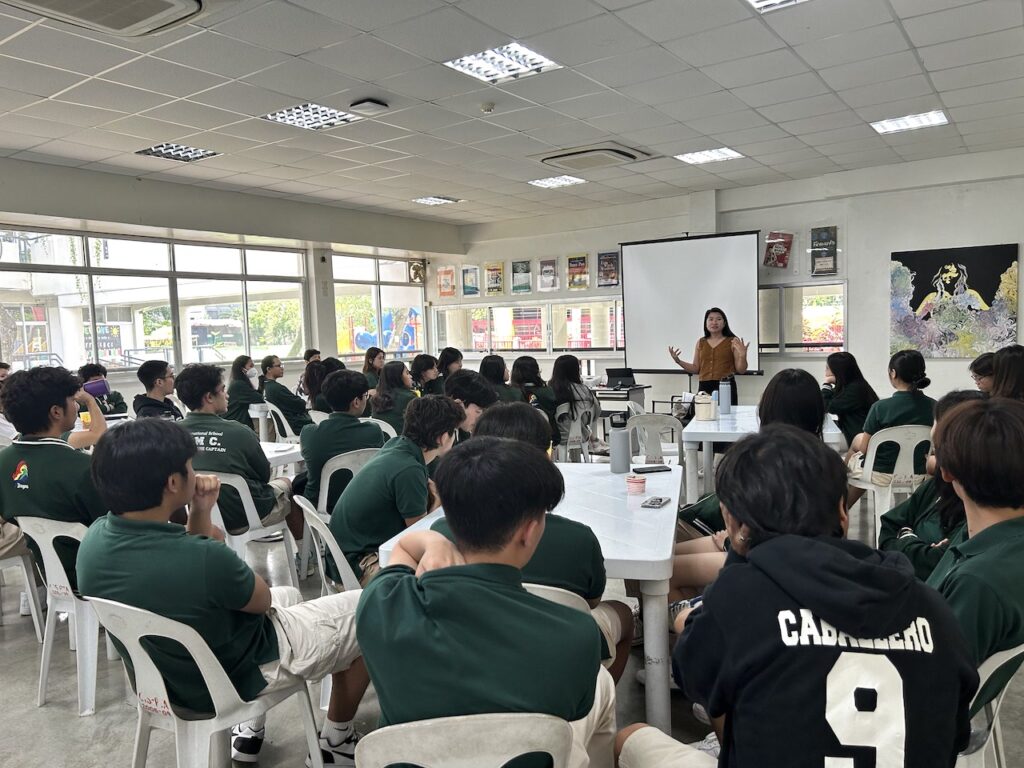
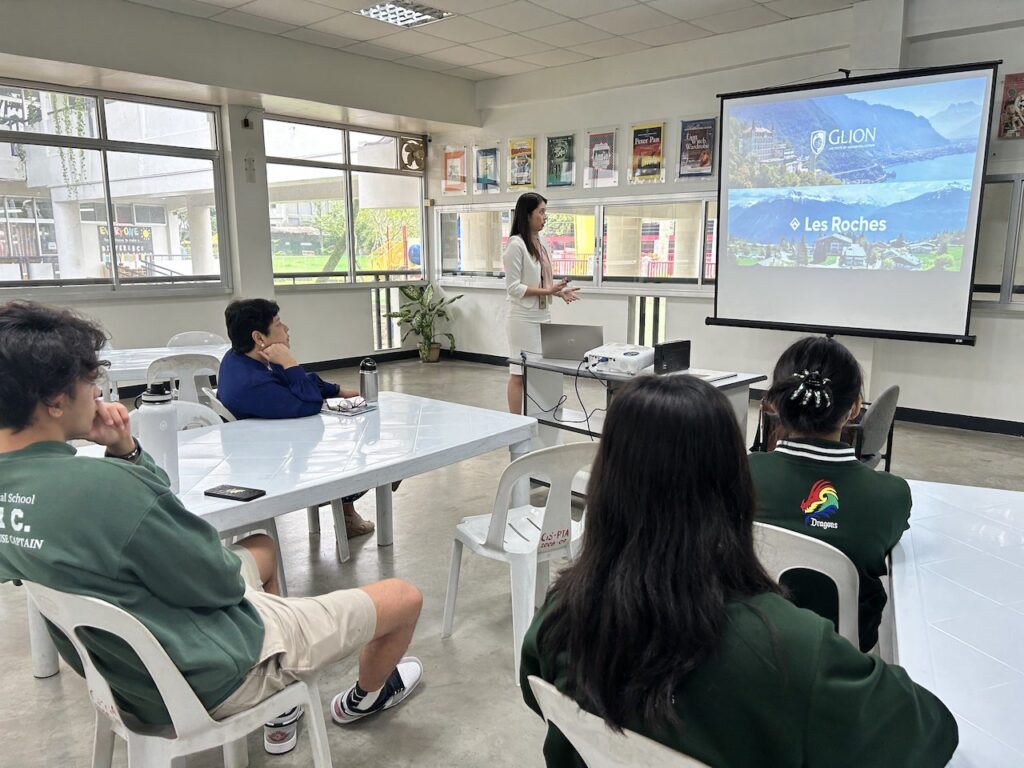
DATE
August 20, 2023
Sunday
12:00 – 5:00PM
Radisson Blu – Cebu
Link to register or you can walk in on the day

August 30
Wednesday
9:00 – 9:40 AM
Canteen Annex
Link to sign up
Hong Kong Polytechnic University
(Hong Kong)

September 1
Friday
9:00 – 9:40 AM
Canteen Annex
Link to sign up
University of San Francisco & Xavier University (USA)


Join us and learn about Brown University, Columbia University, Princeton University, and the University of Pennsylvania!
Admissions representatives will hold a virtual public information session for students and families about their respective universities and the highly selective college admissions process. Topics will include: academic programs, campus activities, admissions policies, financial aid, and international student life.

SAT Update
2023–24 School Year Test Dates
| Test Date | Deadline for Registration, Changes and Regular Cancellation |
| August 26, 2023 | August 11, 2023 |
| October 7, 2023 | September 22, 2023 |
| December 2, 2023 | November 17, 2023 |
| March 9, 2024 | To be confirmed |
| May 4, 2024 | To be confirmed |
| June 1, 2024 | To be confirmed |
To register for the SAT, you may click on this link. If you need assistance or have any questions, please feel free to email Ms. Jenny Basa at jbasa@cis.edu.ph.